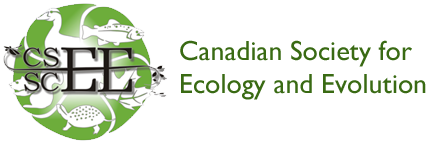PhD or MSc opportunity studying bird and large mammal communities in relation to Indigenous landscape stewardship in British Columbia Canada
Drs. Elizabeth Gow, Andrea Norris and Nicola Koper are seeking a MSc or PhD student to join their research teams at the University of Northern British Columbia.
We are a supportive research group that fosters an equitable and inclusive environment for all members to have equal opportunities to grow, develop, and succeed. We recognize the unique perspectives and worldviews of Indigenous Peoples and the importance of Indigenous-led conservation and will therefore prioritize applications from Indigenous students. Also, we recognize the unique barriers and perspectives of groups often marginalized from science and we strongly encourage applications from all marginalized groups.
Project description: Working closely with Environment and Climate Change Canada (Wildlife Research and Indigenous Science Divisions), and First Nation Partners, the student will co-develop their project in the Interior Douglas-fir Region of BC to examine how landscape stewardship influences bird and mammal communities. The student will build upon existing long-term datasets of bird communities as well as generate new datasets involving before-after-control-impact or control-effect experiments that assess how Indigenous landscape stewardship supports bird and mammal communities. This project centres the landscape stewardship objectives of First Nations and aims to weave Indigenous and Western sciences for the purpose of promoting biodiversity and mitigating climate change.
Necessary qualifications: Completion of a BSc (for MSc) and/or MSc (for PhD) in a relevant field such as Biology, Forestry, Ecology, Environmental Science, Wildlife Management or similar. Drivers licence. Must meet the criteria for admission to graduate studies in the Natural Resources and Environmental Sciences Graduate Program at the University of Northern British Columbia (UNBC; https://www.unbc.ca/nres-graduate-program). The student must have experience navigating with a compass, map, and GPS in remote areas of BC. A keen willingness to work outside and conduct fieldwork during varying weather conditions. Eagerness to engage and work along-side First Nations in developing and designing research and applying findings to meet community needs.
Beneficial qualifications: Proficient BC bird identification skills by sight and sound, and past experience conducting ecological fieldwork and using Automated Recording Units (ARUS) are beneficial. Strong time management and organizational skills are beneficial for managing field crews and large amounts of collected field data as well as experience using R and GIS or other coding related experience.
Location: The student will be based at the University of Northern British Columbia, with fieldwork within ~1 hr from Williams Lake. Fieldwork is variable and depends on the project but generally occurs from May-June and then small trips later in the year to collect memory cards and change batteries. The students will be co-supervised by Dr. Elizabeth Gow (www.elizabethgow.com), Dr. Andrea Norris, and Dr. Nicola Koper (https://www.unbc.ca/people/koper-dr-nicola).
Timeline and Stipend: The ideal candidate would start 1 Jan 2025, but start date is flexible. Minimum stipend of $20,000 with high probability of Teaching Assistantships bringing the stipend close to NSERC rates for MSc and PhD students of $27,000 and $40,000 annually, respectively. Please submit your CV, cover letter indicating how you meet the above qualifications, a 1-page personal statement describing your accomplishments and any challenges that you have faced due to your identity and/or background to elizabeth.gow2@ec.gc.ca and andrea.norris@ec.gc.ca by 2 Aug 2024. Preference will be given to Indigenous students and Canadian citizens or permanent residents, but all applicants that meet the necessary qualifications are encouraged to apply.
